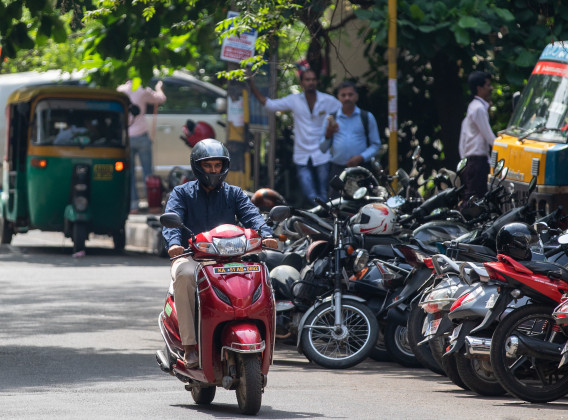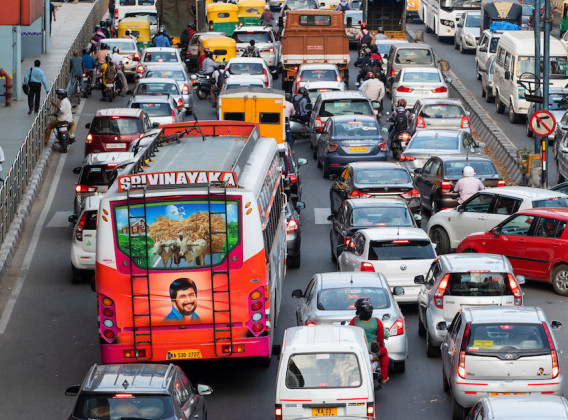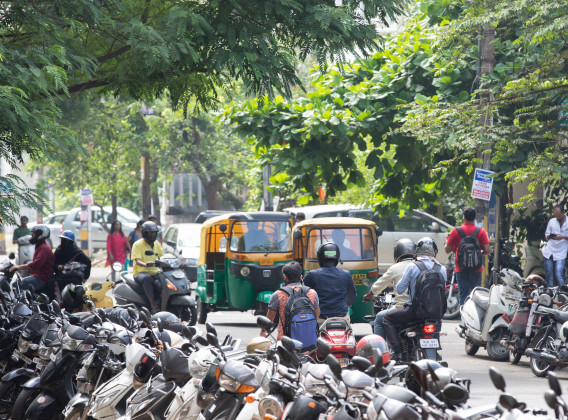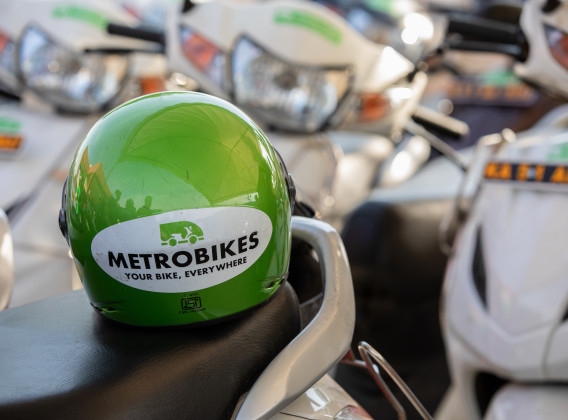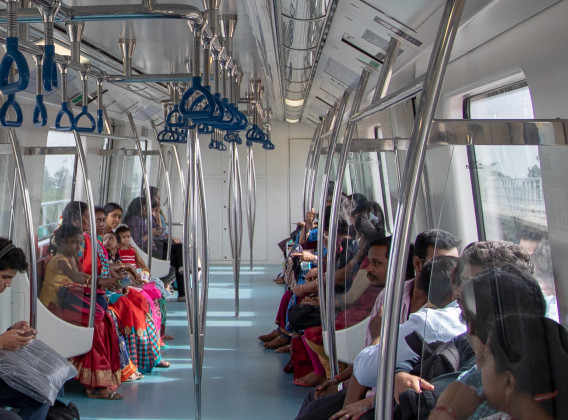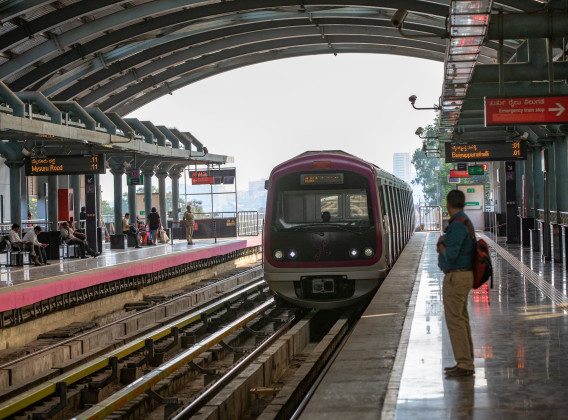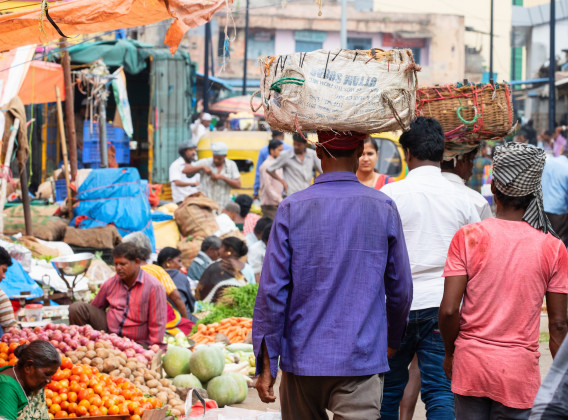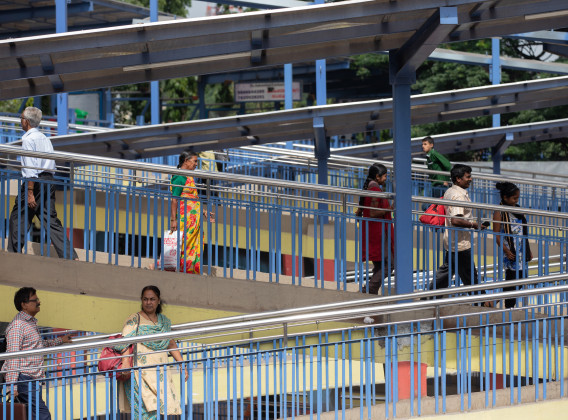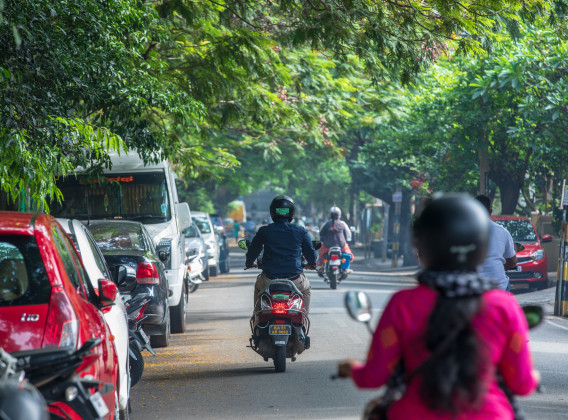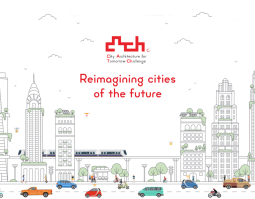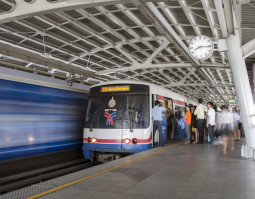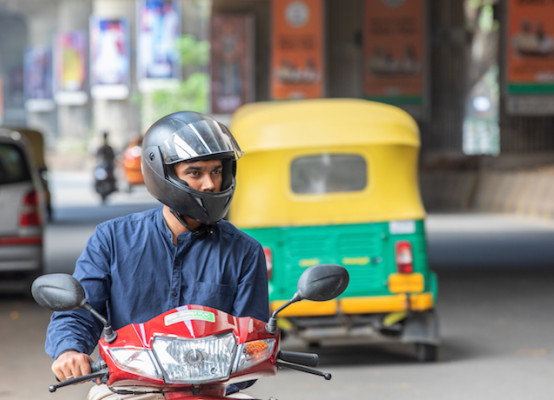
Improving Mobility across India's Bustling Cities
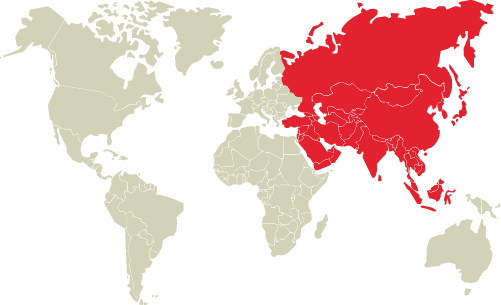
OUR Opportunity
With the promise of good jobs and financial investment, cities are competing to become the next "economic hub." But to attract corporate investments as well as create an ecosystem for start-ups, city governments must build an infrastructure that can support their residents’ transportation needs. Can we leverage innovation and partnerships to help design smart solutions to their city’s mobility challenges?
Our Approach
India’s rapid urbanization has strained cities to meet growing mobility demands. Furthermore, with the challenges caused by climate change, it is crucial that mobility solutions are sustainable. Public transportation, including the metro system, is an especially integral component of mobility options in large cities. Across India, although over 5,000 km of metro rail is planned by 2047, many commuters still struggle with first and last mile connectivity, leading to a lower-than-expected or inconsistent ridership trends.
In 2017, we launched the Station Access & Mobility Program (STAMP) in partnership with the World Resources Institute India, to address the first and last mile connectivity challenges of cities through an open innovation challenge. While the program was initially launched in Bengaluru, considering the broad scope of the required solution from information, hardware, software, payment etc., and the uniqueness of each city, it was expanded to 6 other cities over the course of 7 years to identify and test solutions ranging from on-demand services, to low emission vehicle rental services, to data-driven decision making tools for both transit authorities and commuters. The program aimed to improve connectivity to metro stations, enhance ridership, and reduce urban transport emissions through innovative, multimodal solutions. By fostering collaboration between startups, metro rail agencies, and other stakeholders, STAMP addressed the specific needs of Indian cities in the context of their urban transit systems.
Our Impact
Since its inception, STAMP has expanded from Bengaluru to six additional cities, which were Hyderabad, Kochi, Mumbai, Pune, Nagpur, and New Delhi. Through its four-step process of Research, Capacity Building, Innovation Challenge and Solution Trial, STAMP achieved the following:
- the program piloted 14 innovative solutions in partnership with 13 startups.
- provided over 60,000 last-mile trips,
- saved 646,000 minutes of passenger time, and offered cleaner, more efficient travel options.
Key successes include app-based solutions for bicycle rentals, electrified bike sharing, electrified 3-wheeler booking, carpooling, parking, as well as tools to measure accessibility standards.
Significantly, all the learnings from the Program were made available in city-based reports and a final working paper, which was shared with the Central and State Governments in India (and is available here for your understanding).
By systematically bridging the gap between metro systems and commuters, STAMP aimed to ensure a more efficient urban mobility network, which could reduce congestion and emissions, while fostering economic growth in India's rapidly growing cities.
Working Paper
Learn about existing metro commuter segments, last-mile mode choice preferences, and data to collect for designing viable commuter-centric last-mile services based off of STAMP projects in Nagpur, Delhi, and Bengaluru.
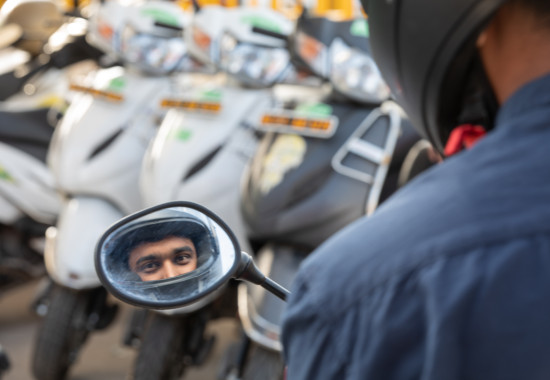
-
Our Timeframe
- 2017
- 2022
-
Piloted 14 innovative solutionsin partnership with 13 startups
-
Over 60,000last-mile trips
Our Goals
- Analyze surveys and secondary data to provide a comprehensive evaluation of issues and opportunities
- Create a collaborative platform for a wide range of stakeholders, including citizens, IT entrepreneurs, government agencies, and mobility companies
- Invite and support participation in the STAMP Challenge
- Measure results of pilot-testing and determine feasibility of applying solutions elsewhere

